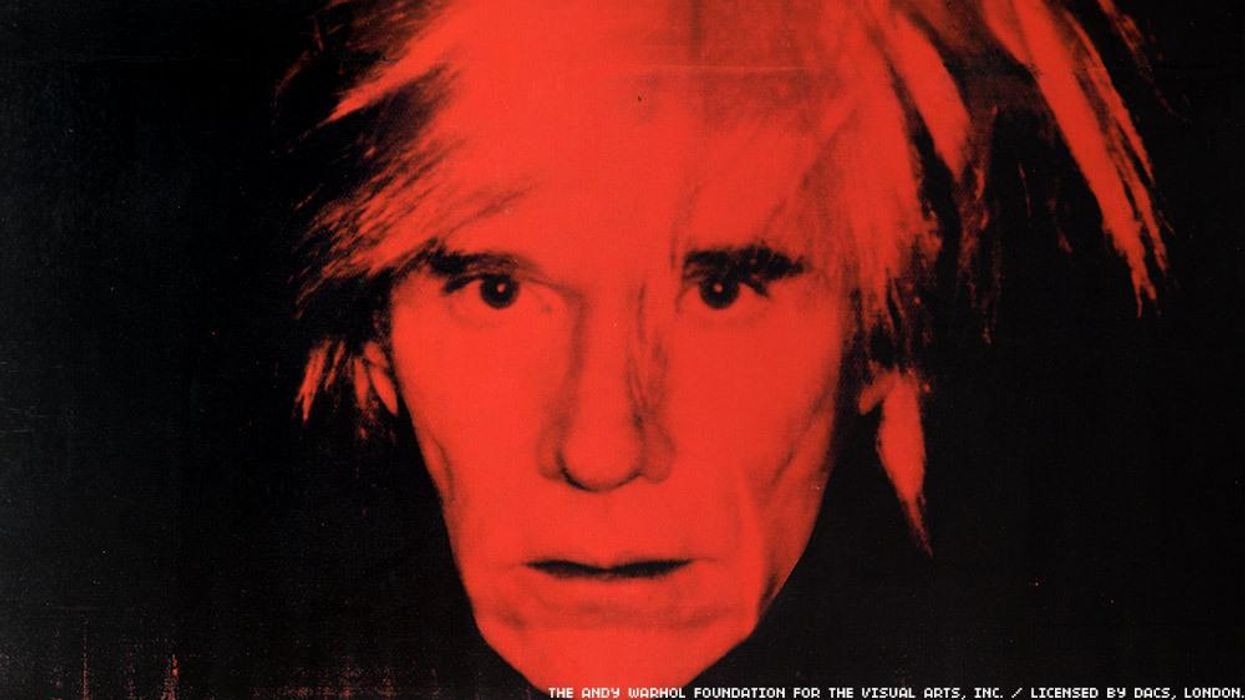
The Tate Museum, a London art museum has turned its exhibit of queer icon and pop artist Andy Warhol's work into an online experience.
April 09 2020 2:33 PM EST
By continuing to use our site, you agree to our Privacy Policy and Terms of Use.

The Tate Museum, a London art museum has turned its exhibit of queer icon and pop artist Andy Warhol's work into an online experience.
Above: Andy Warhol (1928 – 1987) Self Portrait 1986 Tate © 2020 The Andy Warhol Foundation for the Visual Arts, Inc. / Licensed by DACS, London.
If you missed the new Andy Warhol retrospective exhibit at the Tate Modern in London, you’re not alone. The exhibit closed indefinitely after only five days, but rather than leave its new exhibit in lockdown, the museum has chosen to put it online.
The Tate released a collection of web-based resources which allow Warhol afficionados to enjoy the highly anticipated retrospective from the comfort and convenience of their own homes. Included is an exhibition guide, a video tour of the exhibit (below), and a podcast “The Art of the Persona.”
Each the exhibit’s 12 rooms cover a different period the artist’s life and career. Room 1 is entitled “Andy Warhola” and shows his immigrant roots. His parents were Carpatho-Rusyn and emigrated from what is now Slovakia. The remaining rooms chronologically cover the rest of his life, including one devoted to “The Shooting” and a final room simply called “The Last Supper.”
“He is one of those rare artists who transcends the art world, having become widely known as one of America’s most famous artists, if not one of America’s most famous Americans,” exhibit curators Gregor Muir and Fiontán Moran told The Guardian. Over time, Warhol became – and still is – a big brand, which is just how he wanted it.”
Warhol was a leading figure in the avant-garde and pop culture art movement of the 1960s. The artist is probably best remembered by most Americans for his famous silk-screen “Campbell Soup Cans” paintings (taking something incredibly mundane and turning it into high art), or perhaps his attempted murder at the hands of writer Valerie Solanas who shot Warhol in 1968. But his impact was far more significant and was felt as much across the art world as it was reflected in the changing American society.
Warhol was gay, but also once claimed his was still a virgin. Regardless of his sexual activities or lack thereof, one can see the influences of his sexuality in much of his work. The 1964 silent film Blow Job, for example, focuses on the face of a man who appears to be receiving oral sex from an unknown person. While the act itself is not shown, just implied, there is a certain homoeroticism in the 35-minute film.
The Andy Warhol Exhibit seeks to capture the entirety of the creative genuis, and how his art reflected his life and the world about him. (And changed that broader world.)
“Popularly radical and radically popular, Warhol was an artist who reimagined what art could be in an age of immense social, political, and technological change,” the Tate's exhibit summarizes.
Managing Editor at OutTraveler. Also write for Out, The Advocate, and Plus magazines.
Managing Editor at OutTraveler. Also write for Out, The Advocate, and Plus magazines.